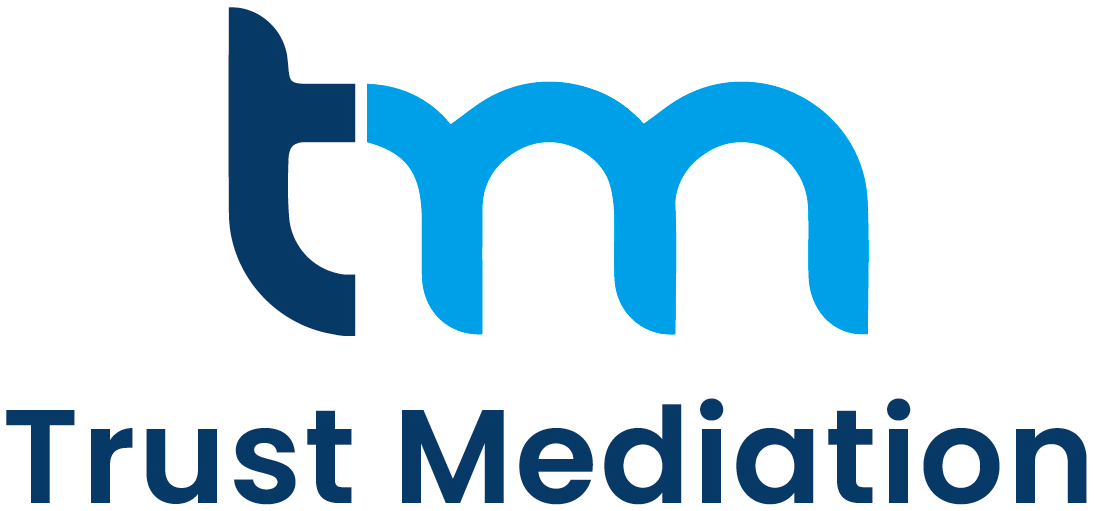According to the Civil Justice Statistics for the period April-June this year, multi-track cases and fast-track claims took 78.2 weeks to reach trial. That is the longest period on record and 9.1 weeks longer than for the same period in 2022. Compared to 2019, these measures are 19.1 weeks longer for multi/fast track claims.
Trust Mediation founding member, Tim Wallis says “Delays of this nature cause real problems to everyone involved in the claims process. From the claimant’s perspective, the claims process that is already seen as slow is extended even further, and claimants now have to wait even longer to be put back in the financial position they were in before the negligent act. The impact of being involved in litigation is not only financial, as it can be very stressful and further delays can cause additional harm. Often claimants will not feel they’ve had closure and be able to get on with their lives until the claim is resolved.
From the defendant’s perspective, additional delays mean that their overall outlay will be increased, and as the defendant will often bear both parties’ costs, this will be a double hit for insurers and defence organisations. Moreover, there is a further negative economic impact because organisations such as insurers are required to keep money locked up in reserves until a claim is concluded. There may also be reputational risk for the defendant from the extended delays, as the claimant may associate the payment delays with them and not the court.”
What can all parties and their lawyers do about the delays?
Firms can use traditional negotiation skills to settle claims without resorting to proceedings and in fact, the vast majority of cases settle in this way. For cases that are not resolved in that way, mediation or some other form of ADR can help.
What types of cases are suitable for mediation?
- Cases where the parties and their lawyers have reached impasse. Trust Mediation deals with many personal injury and clinical negligence cases in this category and the process of mediation is effective at moving through an impasse.
- Cases where the parties are far apart on liability, causation and or quantum. The courts have frequently stated that although it may feel counter-intuitive to mediate in these circumstances, (“We’re so far apart that any further discussion would be hopeless”) the fact the parties views diverge so much is a strong indicator for mediation. One of the parties may be wrong in their opinion, or it may be a case where the risks are finely balanced. Either way, a skilled neutral can work with the parties’ lawyers forensically to review these matters, negotiate and reach settlement.
- Cases where a joint settlement meeting has taken place, but settlement has not been reached. Trust Mediation is often instructed in these circumstances.
- Cases which should have settled but have not. There is usually a reason for the fact that it has not settled, such as a difficult or over-optimistic claimant or defendant, or a deterioration of the lawyers’ relationship. A neutral mediator often becomes a catalyst in reaching settlement of such cases.
- Cases where there are two or more defendants. In addition to the claimant v defendant dispute there is often a second dispute between the defendants. Mediation is effective in these cases and invariably settlement is reached.
What are the benefits of Mediation?
- Mediation is an effective settlement tool. Trust Mediation usually sees a settlement in 80% or more of cases where it is instructed. This ratio is quite high bearing in mind that many cases are of the type described in the examples above, and in some cases a defendant will use mediation to explain (having given advance notice of this to the claimant) the reasons why it has reached the view that there is no liability.
- Mediation is an early settlement tool. This is demonstrated by the fact that over 50% of Trust Mediation’s clinical negligence cases are mediated before court proceedings are started.
- It is not necessary to have a trial bundle to settle a claim. Complex cases can be mediated early; for example, if pleadings are required for the mediation, draft pleadings can be prepared without the cost of issuing proceedings.
- Mediation is the appropriate process where:
- Claimants wish to be personally involved in the resolution of the claim and have their voices heard.the claim involves a high degree of emotion or
- it is a multi-party case.
Despite the clear benefits of mediation, there does still appear to be some reluctance to mediate, however, the scope for resisting mediation continues to reduce significantly. The courts encourage mediation and are now prepared to order a stay for mediation against the wishes of one or both parties. (See Abdel-Kader v Kensington and Chelsea RLBC (Grenfell Tower Litigation) [2022] EWHC 2006 (QB)). Also, a party refusing mediation must now make a contemporaneous statement of its reasons which will be examined by the court if the issue of a costs sanction arises. (See PGF II SA v OMFS Co 1 Ltd [2013] EWCA Civ 1288).
Firm encouragement by the courts is only likely to increase given that mediation for claims under £10,000 is being integrated into the civil procedure and the intent is that the ceiling of £10,000 is increased in due course. The Court of Appeal is set to review the landmark case of Halsey v Milton Keynes General NHS Trust later this year. (Churchill v Merthyr Tydfil Borough Council https://www.lawgazette.co.uk/news/court-of-appeal-showdown-on-compulsory-mediation/5116466.article ).
What are the common objections to mediation?
- The other side insists on a Joint Settlement Meeting. JSMs are often successful but tend to take place later in the case, whereas mediation often succeeds pre-proceedings. Also, a settlement is not always reached at a JSM where parties are entrenched – sometimes mediation is a better option.
- The other side says no to the choice of mediator. A list of 3 mediators can be provided to the other side or suggest a suitable mediation provider and let them choose one of their mediators. Remember that in cases against the NHS, the claimant can choose the mediator from the panel pre-approved by NHS Resolution (NHSR).
- The other side says it is too early to mediate. 50% of the clinical negligence mediations carried out by Trust Mediation now take place before court proceedings are issued, and 80% of those mediations will see resolution. To mediate sufficient information is required to responsibly advise clients on the parameters for settlement.
- The other side say they don’t have experience of mediation. Trust Mediation provides an online training course called ‘Introduction to Mediation’ that allows users to understand the process of mediation and when and how to use it.
- The firm prefers the adversarial approach. Sometimes the adversarial approach is entirely appropriate, and some cases need to go to trial. On the other hand, a collaborative approach at a mediation might provide the right outcome earlier, and the client may be pleased to go down a pragmatic, less stressful route.
- Concern that the client may think the lawyer is not fully dedicated to fighting for their rights. In addition to the above, mediation can give the claimant the additional opportunity of getting assurance that the procedure causing the problem has been changed or they may receive an apology from the defendant during the mediation process. Mediation can help to deliver these extra-legal elements for the client.
- Concern mediation might be seen as weakness. Mediation is a voluntary process and if a satisfactory settlement can’t be negotiated then the client can walk away and proceed to trial. In practice that rarely happens.
- Parties are nervous or uncertain about mediation. Trust Mediation offers confidential pre-mediation discussions with claimants and their solicitor to discuss such matters. Also, 80% of our mediations result in a settlement and Trust Mediation are here to provide guidance and training if required.
- The court process gives you more control. It is ironic that some people object to mediation on these grounds as all parties have more control during the voluntary process of mediation than they do when complying with the Civil Procedure Rule.
- Concern about under-settlement. The actual risk of this is very low indeed. The claimant participates in the mediation, can question and receive advice from their solicitor and counsel, and they will not be rushed into a final decision. Also, the claimant will be invited to have a friend of family member with them at the mediation, so that they can consult with that person before making a final decision.
- Uncertainty about who pays and how much it costs. Trust Mediation will provide full details about this. In the NHS cases NHSR will generally pay the mediator.
- Concern that mediation is an extra layer of expense for the client. Approximately 80% of mediations will not result in any additional expense as the claim will be settled on the day or shortly afterwards. In some cases where settlement is not reached during the mediation, the issues would usually have been narrowed and the parties will have a good idea about the real issues to concentrate on at trial. This offsets the cost of mediation. Attempting settlement by any means involves some risk of incurring costs.
- Concern about whether the cost is proportionate in lower value cases. Cost is always a consideration and online mediation has worked very well in lower value cases. Claimants are clearly more relaxed when mediating online from home and are fully supported in the virtual online room by their solicitor and counsel. Online mediations are cost efficient and save significant travel time and cost.
- Concern that the outcome might not be as favourable as trial. Not every case succeeds, a claimant could wait 18 months to get to a trial and then lose. Mediation helps to understand the strengths of the case and mitigates the risks of an unsuccessful litigation.
At Trust Mediation we understand that the current delays in court are financially impacting the personal injury and clinical negligence firms in this sector and with the extension of Fixed Recoverable Costs coming into force, this will also place a premium on mediation as an effective early settlement tool.
There are many benefits to using mediation and Trust Mediation is here to help.



